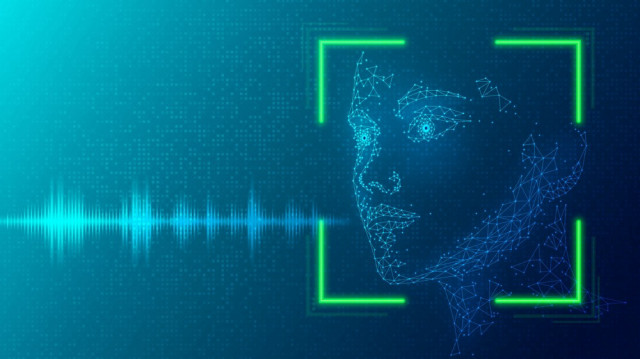
Artificial intelligence advancement to make differentiating between doctored, deepfake, real videos difficult, raising ethical concerns, says expert
Deepfake videos, while showing obvious signs of being doctored footage, will become increasingly difficult to tell apart from real videos with the rise of artificial intelligence (AI), an expert told Anadolu.
Christian Darkin, head of creative AI at UK-based Deep Fusion Films, stated that deepfake videos have certain tells, as “the image breaks up” and “there's a slightly less alive look in the eyes” of people in deepfake videos, as well as slightly lower resolution.
Darkin, while attending the GITEX Europe 2025 tech fair in Berlin, said he has been doing visual effects in the movie industry for two decades, noting that AI changed everything in film production.
“People have got a very bad opinion of what deepfakes are because they can be used in some really quite awful ways,” he said. “But, if you imagine a stunt person films a scene for a movie, then you want to replace the stunt person's face with the face of the original actor, well, that's a deepfake -- that's an ideal way to use that kind of technology.”
He mentioned that deepfakes can also be used to bring a historical figure to life by using voice recordings of interviews, among other things.
“The really important thing is to make sure you're going to be ethical about it, to make sure everybody knows that what you're doing isn't real,” he noted.
Darkin stated that deepfake videos made with AI can convincingly pose as real footage, advising the “labeling of AI” in the videos for ethical reasons.
“A British interviewer called Michael Parkinson -- he was famous all over the world and for 30-40 years he did interviews with the most famous people in the world. Last year, sadly he died, what we've done is we've brought him back to do interviews, using a version of his voice to create a podcast and to create interviews with modern people now,” he said. “I would have said that would be quite unethical thing to do, but the person who's asked us to do it is Michael Parkinson's son and also his producer.”
“It's something thing that they've talked about before he died -- having the family is tremendously important to make sure that what you're doing is in the spirit of the person who you're doing with their permission, if possible, and with the permission of all the people who care about and know about, and are responsible for their legacy,” he added.
Darkin stated that AI will become more powerful in the future and it needs to be taken into account.
“We can see hundreds of companies, who are all competing to kind of fill that space, but I don't think anyone really knows quite how far it's going to go,” he said.
He noted that AI will be used more like an assistant in the decision-making processes and projects.
Darkin highlighted that advancements will reach a point of no return, where “it's going to be impossible to trust what we see on video,” advising the need for increased responsibility for content verification.
“So, I could say now that a deepfake of me would be really easy, if I face away from the camera, you'll start to see the image break up -- it will be more difficult to fake it,” he said. “There's a slightly less alive look in the eyes perhaps, there's a slightly less resolution in the features, these things are true now.”
“You can tell now if you're really good at it, what's fake and what isn't, could you do it in three months' time? Maybe not,” he added.
Darkin stated that AI will enable the use of better special effects in movies, such as making actors different ages or dead actors star in films.
He added that anyone utilizing AI will be able to produce Hollywood-level movies with complete control over AI-created actors, environments, and more.







